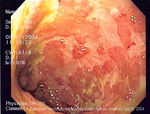Gastroenterology
Gastroenterology is an important medical system and profession which deals with all the organs of the Gastrointestinal Tract (Mouth, esophagus, small intestine, large intestine (colon), rectum, anus, ect.). In order to learn all the problems of the digestive system, some mild, and some incredibly life threatening, gastroenterologist are required around 8 years of schooling. These years are spent both learning and experiencing the ways of this specific medical field which includes an internship and learning the most effective ways to work with patients. The GI tract is a complex and special system which can often encounter many issues in the various different organs. One of the most common categories of GI tract issues is Irritable Bowel Syndrome (IBS). This syndrome includes the possibility of issues, some mild and some incredibly severe.
What is the Gastrointestinal Tract?
The gastrointestinal (GI) tract consists of a large amount of connective tissue and major organs. Highly composed of digestive organs, the GI tract begins at the mouth and is complete at the anus. The tract is powered by many different types of hormones, muscles, and enzymes. When food or liquids are chewed and swallowed they are forced through the esophagus by muscles. At the end of the esophagus the muscle relaxes and releases the food/liquid into the stomach. Once the food has been transported into the stomach it is mixed and slowly digested by acidic juices. In the small intestine, the digestive process continues and the nutrients that is necessary is diffused into the bloodstream. Once in the bloodstream, it is distributed throughout the body and it's organs and glands. In the large intestine force the remaining waste and to the rectum where it is stored before deposited via the anus. [1]
Gastroenterologist
Becoming a gastroenterologist is not a quick and easy task to complete. The process of achieving this title takes many years of dedicated studying, testing and practicing of the required skills. Students who have participated in extra activities such as sports and clubs throughout high school and college are more likely to have their applications be acknowledged. Taking honors classes and in general having more desirable grades are also highly encouraging factors to those considering a student. Earning a Bachelors degree is the first major step of becoming a gastroenterologist. The next tasks required are to pass the medical admissions test and to go through your choice of a medical program. Another exam is required to become medically licensed and then go through 2 or three years of medical training. The final step before becoming certified, is to complete a 3 year period of fellowship, which requires 18 months of learning how to care for and interact with patients. [2]
Most Common Problems
Acid Reflux
Acid reflux is a very common problem for people all over the world. This problem is most often seen in those who are above 40 years old, or in small toddlers. When entering the stomach there is valve that prevents acid from going up the esophagus. This valve is called the lower esophageal sphincter. Usually closing after food has passed through the valve sometimes will not close quick enough, not close completely, or opens to often. This allows acid to travel up the esophagus and cause a burning sensation in the throat. If this occurs more than 2 times a week, then it is categorized as Acid reflux disease. Also referred to as gastroesophageal reflux disease or GERD. [3]
Colon Cancer
The large intestine is often referred to as the colon, which is where colon cancer begins. In almost all cancer cases, doctors often try to determine the stage of the cancer cells. There are four stages of cancer, the higher the number the greater the risk. The description of "colon" cancer is simply referring to the origin of the cancerous cells. For this reason colon cancer is also commonly referred to as rectal cancer. The most typical symptoms of colon cancer are: change in bowel habits, blood in/on stool, anemia, abdominal pain or bloating, weight loss, vomiting. [4]
Crohn's Disease
Crohn's disease is the inflammation of any organ involved in the GI tract. This disease is categorized as a chronic inflammatory bowel disease. The most common location for the GI tract to encounter this particular disease of inflammation is at the end of the small intestine. This part of the small intestine is more specifically named the ileum. However, when one location has been affected, it is common for it to spread into other areas of the tract. Also, even after remission, the disease often recurs at least one time. [5]
Ulcerative Colitis
Related to Crohn's disease, Ulcerative Colitis is a chronic inflammatory bowel disease. This specific disease is located strictly in the colon, and in the inflammation of the colon walls. Unlike Crohn's disease, Ulcerative Colitis also results in the ulceration of the colon walls. As suggested by the "chronic" description, this disease is not curable. However, the symptoms can be greatly reduced by medications and other medical procedures. Symptoms of this can be Diarrhea, Abdominal pain/cramping, rectal pain/bleeding, trouble passing stool, fever, and a few other less severe indications. The severity of symptoms can be mild to extremely severe. Those who are younger with the disease often have more intense symptoms depending on how much of the colon is affected. Although doctors have not yet fully discovered the cause(s) of this disease, there are some indications that it could be passed on by family members or certain types of immune system attacks. In order for doctors to diagnose Ulcerative Colitis they could take a stool test, blood test,tissue test, CT Scan, or colonoscopy. [6]
Hemorrhoids
There are two main types of hemorrhoids that can occur, internal and external. A hemorrhoid is a inflamed blood vessel located on the opening of the anus. An internal hemorrhoids are actually quite normal, and they actually protect the walls of the colon during a bowel movement. However, they can be strained to the point of relocated lower in the colon, due to excess pressure. When this occurs they begin to bleed and become increasingly agitated. Over time they can locate outside of the anus which can cause many problems and irritations. There are different types of surgeries that can take place to relocate the hemorrhoid or to remove them if excessively persistent. External hemorrhoids are strained veins under the skin of the anus. They can become very irritated and can also bleed, burst, and result in blood clots. When this occurs the condition is called pile. [7]
Celiac Disease
Celiac disease has a variety of forms and can affect every person differently. This disease is reaction in the immunity system to gluten products. This disease can happen in children or adults but it seems to be more common in children. Some of the symptoms that occur the most in children are: stomach pain, diarrhea, constipation, delayed growth, lack of energy, and weight loss. Adults commonly experience other symptoms, such as: depression, severe or mild fatigue, itchy skin, numbness, issues with the liver, seizures, infertility, and canker sores. There are two main categories of celiac disease: classical and non-classical. Classical celiac disease has less severe symptoms. Non-classic celiac disease can result in many more symptoms, with increasing severity, and affecting a larger majority of the body and its organs. There is one other type of celiac disease which is called Silent Celiac Disease. In this case, the patient seems to have no symptoms, yet experiences discomfort when eating certain types of food. The most common food that leads to discomfort is gluten which is found in many wheat and dairy products.
Video
Bob Kizer speaks of what it means to be a gastroenterologist and what this profession requires.
List of Diseases
References
- ↑ Gastrointestinal Tract (GI Tract) Pub Med Health. Web. Accessed: March 12, 2017. Unknown Author.
- ↑ How to Become a Gastroenterologist: Education and Career Roadmap Study.com. Web. Accessed: March 07, 2017. Unknown Author.
- ↑ What Is Acid Reflux Disease? WebMD. Web. Date Accessed: March 12, 2017. Unknown Author.
- ↑ Colon Cancer Symptoms & Treatments | Colorectal Cancer Cleveland Clinic. Web. Accessed: March 07, 2017. Unknown Author.
- ↑ Understanding Crohn's Disease Crohns&Colitis. Web. Accessed: March 12, 2017. Unknown Author.
- ↑ Ulcerative Colitis - Topic Overview | Colorectal Cancer WebMD. Web. Accessed: March 17, 2017. Unknown Author.
- ↑ Gastrointestinal Disorders Cleveland Clinic. Web. Accessed: March 17, 2017. Unknown Author.
| ||||||||||||||||||||






